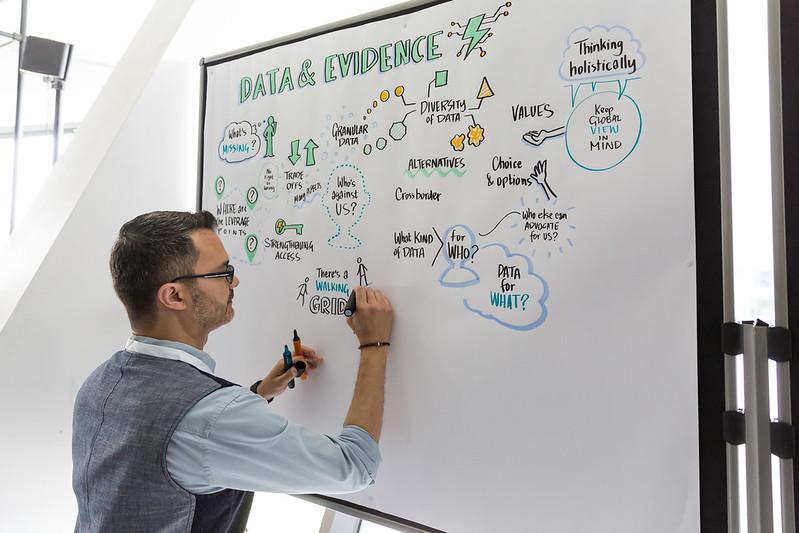Evidence Gap Map and Systematic Review on Sustainable Energy in the Global South
Halfway through the implementation of the Sustainable Development Goals (SDGs), progress towards SDG7, which aims to provide affordable, reliable, sustainable and modern energy for all, is mixed. Though the share of populations with access to electricity has risen 10% in the past decade, this is concentrated in certain countries, with much of the world’s rural poor still without access.
To address the urgent need for actionable insights and evidence-based solutions in the sustainable energy sector, SEforALL and the International Initiative for Impact Evaluation (3ie) have joined forces to commission two groundbreaking projects: an Evidence Gap Map (EGM) and a Systematic Review (SR) focused on sustainable energy interventions in the Global South.
Evidence Gap Map
The Sustainable Energy EGM is a global public good that provides an easy access platform to explore the rigorous evidence base on sustainable energy interventions in the Global South. It provides researchers and policymakers with easy and quick access to the rigorous evidence base on the effects of sustainable energy interventions in low- and middle-income countries.
With the large costs associated with conducting impact evaluations and other forms of research, EGMs save time, effort and resources by reducing research duplication and providing examples of how interventions and study designs have been utilized in the field. The EGM also provides insights on gaps in evaluations and research, which can help guide strategic decisions on investing in evaluations to fill those gaps of evidence.
EGMs guide evidence-informed policymaking by highlighting where evidence of impact exists and which policies and regulations have proven to be most effective in creating an enabling environment for sustainable energy. With the evidence base and key findings generated through our EGM analysis, the limited resources available to address SDG7 can be used more cost-effectively.
EGMs can also guide programme design and global knowledge products for the sector. This can be achieved by leveraging key learnings and recommendations through Systematic Reviews (SRs). These can be designed by designing research questions that leverage many filters available in the evidence base. Through these lenses, an SR can focus on specific technologies, thematic solutions, regions, countries, and much more, to glean targeted insights.
Considering the sharp growth within the evidence base over the past three years, updating the map regularly will prove an important exercise to ensure policymakers, researchers, the private sector, international organizations and investors continue to have access to the most up-to-date evidence and associated recommendations and learnings.
Key findings from the EGM
The evidence base identified is large and recent but is concentrated around few intervention categories meaning evidence gaps exist.
- Geographically, evidence is also concentrated, with major evidence gaps in countries with the greatest energy access deficits.
- Near equal number of evaluations and research assessed the three outcome targets of SDG7: energy access, efficiency and renewables.
- Few high and medium confidence SRs have been conducted, which is why SEforALL and 3ie are conducing the first SR for this specific EGM as a next step.
Systematic Review (coming soon)
In tandem with the Evidence Gap Map, SEforALL and 3ie are conducting a Systematic Review to delve deeper into the effectiveness, barriers, and facilitating factors of off-grid interventions designed to increase energy access. This initiative seeks to provide a nuanced understanding of the dynamics shaping off-grid energy access solutions, offering invaluable insights for policymakers and practitioners alike.
Through a rigorous synthesis of existing evidence, the Systematic Review aims to uncover actionable findings that can inform the design and implementation of off-grid energy initiatives going forward. The results of this endeavor will be available in the coming months, serving as a catalyst for dialogue and action within the sustainable energy community.

